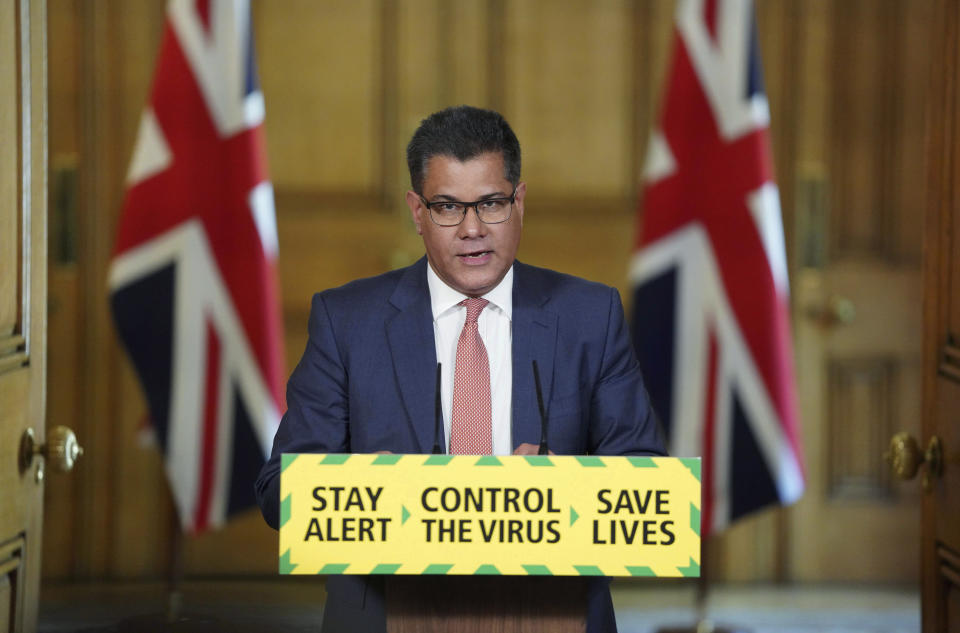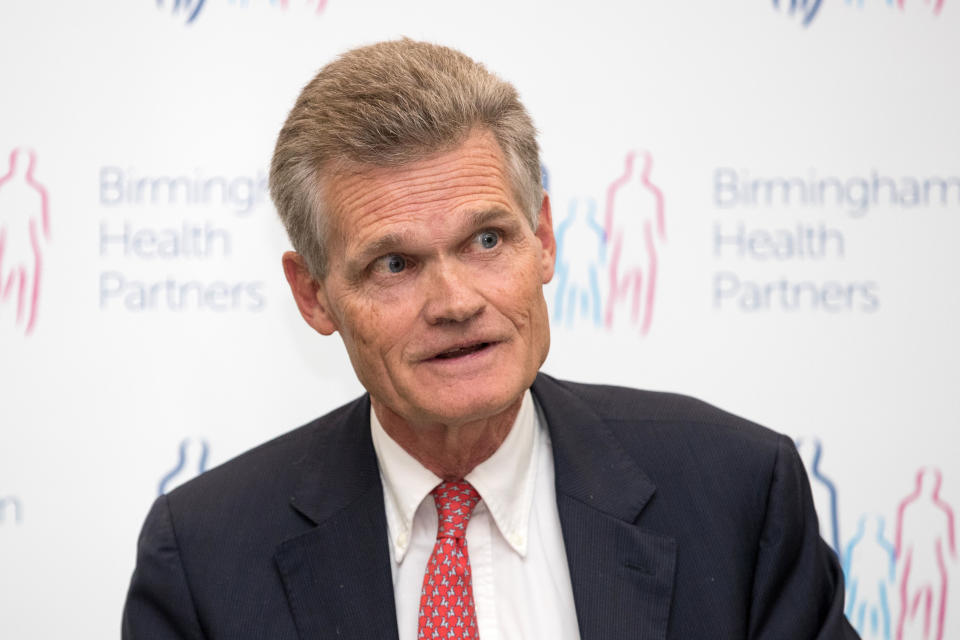Coronavirus: Scientist working on vaccine says government is creating 'false expectations'
A scientist working on a possible COVID-19 vaccine says the government is creating “false expectations” after it touted that 30 million doses could be made for Britain by September.
Ministers announced a deal between a team at Oxford University and the drugmaker AstraZeneca on Sunday, along with pledging £65.5 million in additional funding for the coronavirus vaccine project.
Business secretary Alok Sharma said the team could deliver 100 million doses in total if ongoing trials succeed, along with the September time frame.
However Professor Robin Shattock, head of mucosal infection and immunity at Imperial College London, said it is “important not to have a false expectation that it is just around the corner”.

“It’s highly unlikely that a vaccine will be available for use by September,” he told BBC News.
“Generating doses of the vaccine is very different to having the necessary data to show that any vaccine is both safe and effective against COVID-19.
Professor Shattock, who is leading his own team at Imperial College for finding a vaccine, said there are a number of factors to consider before a vaccine is deemed safe and effective enough to be rolled out nationwide.
“It will be critical to build the evidence base to show a vaccine works before it’s deployed,” he said. “This takes time and is dependent on seeing a difference in the number of infections between active vaccine and a placebo.
Latest coronavirus news, updates and advice
Live: Follow all the latest updates from the UK and around the world
Fact-checker: The number of COVID-19 cases in your local area
6 charts and maps that explain how COVID-19 is spreading
“The lower the transmission rate in the UK, the longer it will take to generate such data.
“While UK scientists are actively working on different vaccine approaches, there is no guarantee that any individual approach will work.
“It’s important not to create false expectations ahead of any breakthrough, where the evidence will speak for itself.”
Sharma said on Sunday that Shattock’s team at Imperial College London was “making good progress” and would look to move into clinical trials for a vaccine by mid-June, with larger-scale trials in October.
But Shattock said there is “no certainty” a vaccine will ever be created and that his optimistic estimation is “sometime next year”.

He said: “I think we have a very high chance of seeing a number of vaccines that work because we know a lot about this target and I think there’s good scientific rationale to say it’s not such a hard target as others.
Read more: 5 facts about Alok Sharma, new UK business secretary
“My gut feeling is that we will start to see a number of candidates coming through with good evidence early towards next year – possibly something this year – but they won’t be readily available for wide-scale use into the beginning of next year as the kind of most optimistic estimation.”
Sharma echoed this warning yesterday, saying there are no certainties and that it is possible trials may not lead to a successful coronavirus vaccine.
He said that so far the government had invested £47m in the Oxford and Imperial vaccine programmes, and announced a further £84m in new funding “to help accelerate their work”.
“This new money will help mass-produce the Oxford vaccine so that if current trials are successful we have dosages to start vaccinating the UK population straightaway,” he said.
Read more: ‘High chance’ of coronavirus vaccine being developed, expert says
The business secretary said the speed at which Oxford was pushing ahead with development was "genuinely unprecedented" and that the first clinical trials were "progressing well".
Dr Alexander Douglas, leader of the research group at Oxford that has developed the manufacturing method, said: 'We have been preparing for large-scale manufacturing of our vaccine candidate since February.
“This funding enables manufacturing to start immediately, and so will make vaccine available as soon as possible, while adhering to the most stringent safety standards.
“The methods developed here in the UK will also enable the production of vaccine for other countries.”
Read more: Government 'will make schools decision just four days before planned reopening date'
Professor Sir John Bell, regius professor of medicine at Oxford University, said: ‘The University of Oxford is immensely proud of the scientists at the Jenner Institute and the Oxford Vaccine Group who have worked tirelessly to discover and develop this vaccine in record time. “


